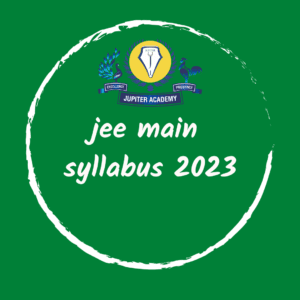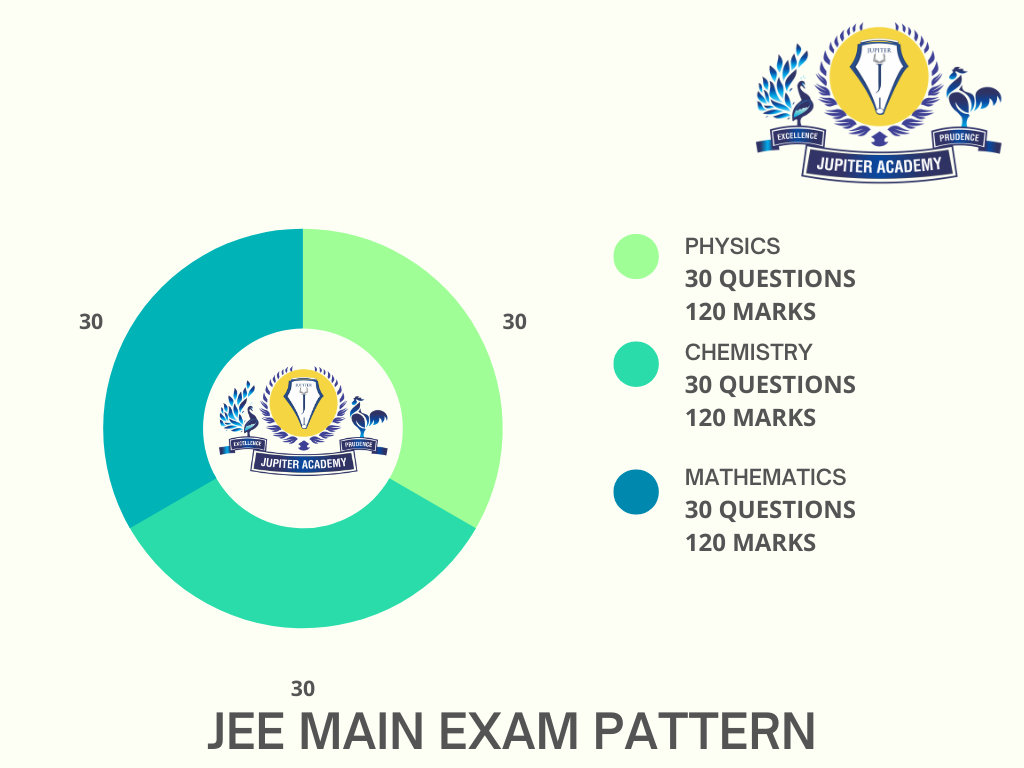
JEE Main Syllabus 2023
The JEE Main syllabus 2023 will soon be released by the National Testing Agency (NTA) on their website, along with the new information brochure covering all the exam details. JEE aspirants are recommended to download the JEE Main 2023 syllabus PDF to be aware of the topics to learn.
Thank you for reading this post, don't forget to subscribe!Students can go through the expected 2023 syllabus below. jee main syllabus 2023 pdf download
JEE 2023 Overview
JEE Full Form | Joint Entrance Examination |
Category | National-level competitive exam |
Purpose | Admission to IITs, NITs and other prestigious engineering colleges in the country. |
Phases | JEE Main |
JEE Advanced | |
Exam Mode | Online (Computer-based Test) |
Exam Authority | National Testing Agency for JEE Main |
IITs for JEE Advanced |
JEE main syllabus 2023 pdf download
The JEE Main Syllabus for Paper 1 (B.E./B.Tech) features topics from 3 different subjects – Physics, Chemistry, and Mathematics. Several topics that fall under the JEE Main syllabus are also covered in the NCERT Syllabus for Classes 11 and 12. Therefore, a strong understanding of the concepts covered in the NCERT textbooks for Classes 11 and 12 is of vital importance to candidates hoping to crack the JEE Main and Advanced examinations.

JEE Main Physics Syllabus
| Physics and Measurement | Thermodynamics |
| Kinematics | Rotational Motion |
| Gravitation | Work and Energy |
| Power | Properties of Solids and Liquids |
| Laws of Motion | Electronic Devices |
| Oscillations | Waves |
| Current Electricity | Electromagnetic Waves |
| Communication Systems | Electromagnetic Induction |
| Magnetism | Alternating Currents |
| Magnetic Effects of Current | Kinetic Theory of Gases |
| Dual Nature of Matter | Radiation |
| Atoms | Nuclei |
| Optics | Electrostatics |
JEE Main Chemistry Syllabus
| Physical Chemistry | |
| Basic Concepts in Chemistry | States of Matter |
| Chemical Bonding | Atomic Structure |
| Solutions | Solutions |
| Redox Reactions | Chemical Thermodynamics |
| Equilibrium | Electrochemistry |
| Surface Chemistry | Chemical Kinetics |
| Organic Chemistry | |
| Polymers | Principles of Practical Chemistry |
| Organic Compounds – Characterisation and Purification | Oxygen, Halogens, and Nitrogen Organic Compounds |
| Hydrocarbons | Biomolecules |
| Basics of Organic Chemistry | Chemistry in Everyday Life |
| Inorganic Chemistry | |
| Hydrogen | Classification of Elements |
| Periodicity | Alkali metals |
| Group 13 to Group 18 Elements | Alkaline Earth Metals |
| D and f Block Elements | Coordination Compounds |
| Environmental Chemistry | Isolation of Metals |
JEE Main Maths Syllabus
| Sets, Relations, and Functions | Complex Numbers |
| Determinant | Quadratic Equations |
| Matrices | Permutations Combinations |
| Mathematical Induction | Sequence Series |
| Binomial Theorem | Limits and Continuity |
| Differentiability | Statistics |
| Differential Equations | Integral Calculus |
| Trigonometry | Vector Algebra |
| Coordinate Geometry | Mathematical Reasoning |
| 3D Geometry | Probability |
JEE Main Paper 1 Exam Pattern
| Exam Mode: Computer-based (Online) |
| Exam Duration: 3 Hours |
| Subjects: Physics, Chemistry, and Mathematics |
| Total Number of Questions: 90 (30 Physics + 30 Chemistry + 30 Maths) |
| Question Types: MCQs and Numerical Questions for Each Subject (PCM) |
| Maximum Marks: 300 |
| Marking Scheme:
|
| Exam Languages: English, Hindi, Gujarati, Assamese, Bengali, Kannada, Malayalam, Marathi, Odia, Punjabi, Tamil, Telegu and Urdu |
JEE Main Paper 2A and 2B Syllabus (Aptitude Test B. Arch/B.Planning)
| Part I | Awareness of persons, places, buildings, materials. Objects, texture related to architecture and build—environment. Visualising three-dimensional objects from two-dimensional drawings. Visualising different sides of three-dimensional objects. Analytical reasoning mental ability (Visual, numerical and verbal). |
| Part II | Three-dimensional perception: Understanding and appreciation of scale and proportion of objects, building forms and elements, colour texture, harmony and contrast. Design and drawing of geometrical or abstract shapes and patterns in pencil. Transformation of forms, both 2D and 3D union, subtraction, rotation, development of surfaces and volumes, Generation of plan, elevations and 3D views of objects. Creating two-dimensional and three-dimensional compositions using given shapes and forms.
Sketching of scenes and activities from memory of urbanscape (public space, market, festivals, street scenes, monuments, recreational spaces, etc.), landscape (river fronts, jungles, trees, plants, etc.) and rural life. |
JEE Main Paper 2A and 2B Exam Pattern
| Exam Mode: Computer-based (Online) |
| Exam Duration: 3 Hours |
| Subjects: Mathematics, General Aptitude, & Drawing (B.Arch.) or Planning (B.Plan.) |
| Total Number of Questions:
B.Arch.: 82 (30 Maths + 50 Aptitude + 2 Drawing ) B.Plan.: 105 (30 Maths + 50 Aptitude + 25 Planning) |
| Question Types:
|
| Maximum Marks: 400 |
| Marking Scheme:
|
| Exam Languages: English, Hindi, Gujarati, Assamese, Bengali, Kannada, Malayalam, Marathi, Odia, Punjabi, Tamil, Telegu and Urdu |
jee main syllabus 2023
jee main syllabus 2023
jee main syllabus 2023
jee main syllabus 2023
jee main syllabus 2023
jee main syllabus 2023
jee main syllabus 2023
jee main syllabus 2023
jee main syllabus 2023
jee main syllabus 2023
